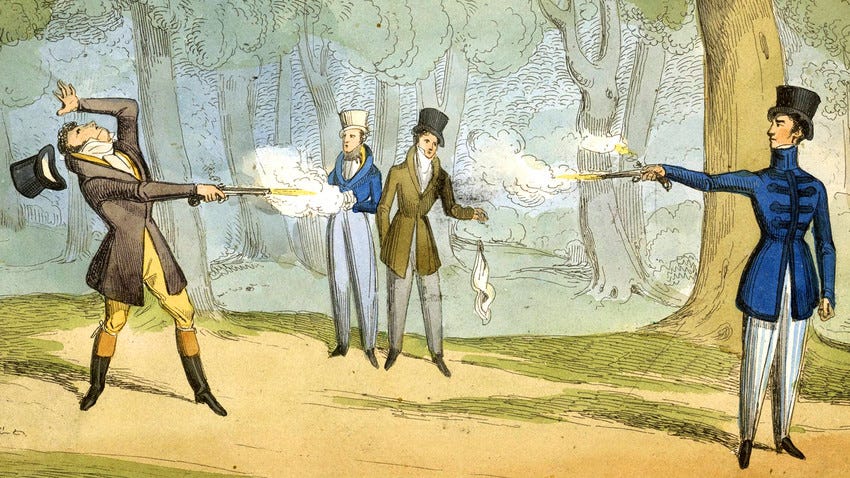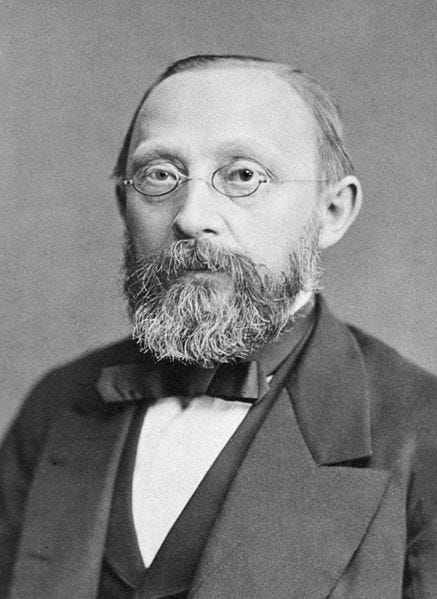Gentlemen, choose your weapons!
Of pistols, swords and sausages in 19th-century politics
It didn’t take much to provoke Otto von Bismarck. The Prussian aristocrat, who was to become Germany’s first chancellor in 1871, may have been a big man – at 6ft 2in height with a barrel chest, he certainly looked imposing – but he was also intensely emotional and impulsive. It was a character trait he would not, perhaps could not, control even when he entered high office.
In 1865, Bismarck was Prussia’s Prime Minister and deeply embroiled in an argument with parliament over budget matters, particularly those pertaining to military spending – a constitutional crisis that had nearly pushed King Wilhelm to abdicate a few years earlier. Tempers were running high and Bismarck clashed repeatedly with many of the liberal parliamentarians.
One vocal opponent of Bismarck’s arch-conservative politics was the physician and scientist Rudolf Virchow, a leader of the liberal German Progress Party. In the early summer of 1865, a heated argument over naval funding between the liberals and Bismarck raged. In the context of this debate, Virchow gave a speech in which he implied that the Prime Minister hadn’t read an important document on the matter. Or if he had, Virchow continued, ‘then I do not know what I shall say of his honesty.’ That hit Bismarck where it hurt: his honour. He responded in the manner of a 19th-century nobleman: by challenging Virchow to a duel.
As the challenged party, Virchow would have had the choice of weapons. According to a popular legend, he chose neither pistol nor sword – but sausages. Being a man of science, so the story went, he received Bismarck’s official letter in his laboratory where he was investigating the life cycle of the roundworm Trichinella spiralis. Typically flourishing in undercooked pork products, when ingested by humans, it causes the first symptoms after 12 hours or so, beginning with nausea, vomiting, sweating, and diarrhoea and ending in intense pain, difficulty breathing and heart damage, eventually leading to death through organ failure. A text from 1893 claimed that Virchow responded to Bismarck’s challenge by producing two sausages, one filled with trichinae, the other perfectly harmless. Bismarck was to choose one and eat it, he would eat the other. Bismarck declined and Vichow’s honour and life were saved. It’s a great story but unfortunately, it’s also a total fabrication.
In reality, Vichnow simply declined. He and his liberal supporters argued that duelling had no place in modern politics while Bismarck fans sneered that of course Vichnow wouldn’t defend his honour with his life as he, not being of noble birth, had none to begin with. The argument caused a media frenzy that was indicative of the changing times that both men lived in.
Keep reading with a 7-day free trial
Subscribe to ZEITGEIST to keep reading this post and get 7 days of free access to the full post archives.



